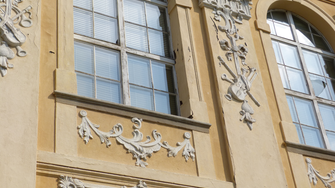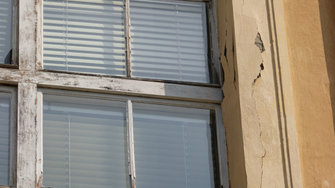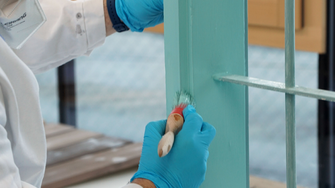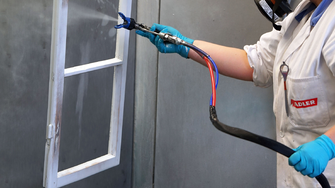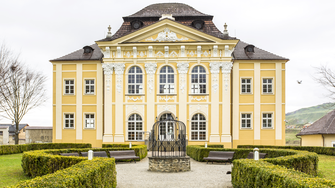Historical windows – well-protected for the future
The architecture of centuries gone by is what gives many European cities their unique character. Beautifully constructed windows are vital to the overall look of a historical facade. It is important that we preserve the special style of these windows for the future. Refurbishment with ADLER's new Histo system gives historical wooden windows the best possible protection for many years to come, whilst also retaining their unique character.
8 Apr 2022
Specialist coating for difficult cases
Poor adhesion, a high moisture load, problems with dark yellowing: the challenges that can arise with the renovation of historical window frames are many and diverse – but ADLER Histo can overcome them all. This solvent-based coating dries rapidly and has excellent properties of adhesion, even on old wood that is less absorbent. And its vapour permeable surface ensures an active moisture balance. In keeping with the traditional recipe for historical window frame coatings, ADLER Histo is manufactured with a high linseed oil content. We use a specially modified linseed oil which is extremely durable and has outstanding properties of adhesion, both on old wood and on any areas where there are residues of old linseed oil.
Efficiency in use
ADLER Histo is robust, reliable – and versatile: a coating that is suitable for both brush and spray application. "This means that you can use a brush to paint any fixed elements on site, whilst casements and shutters can be removed and coated more efficiently by means of spray application," explains Dr Markus Fessler, Head of Development for Window and Construction Coatings at ADLER. The initial coat of Histo Base ensures perfect adhesion – not just on wood, but also on metal. "Metal fittings can be coated at the same time, giving them good protection against rust," Fessler tells us. This is followed by two coats of the topcoat Histo Protect which give the window frame its stylish, silk matt surface, in white or in one of a range of selected shades. If only a part of the window frame is to be refurbished in the course of a renovation project, with the remainder being built new, ADLER can also offer the right product: their Aquawood range of water-based coatings achieves surfaces that are perfectly matched to those created by the Histo system.
Sustainable solution
Recycle or reuse rather than throwing things away: this principle applies to windows too. Preserving and upgrading historical windows by means of professional renovation is absolutely in line with the concept of sustainability. With modern insulated glass, new sealant and the right ADLER coating, even windows that are centuries old can be brought up to the latest standards. In accordance with this, ADLER's Research & Development team have put a lot of effort into developing an environmentally friendly formula for their Histo system: the coating is free from aromatic solvents and other harmful ingredients that can often be found in traditional linseed oil paints. ADLER Histo is also biocide-free – "should the customer explicitly ask for chemical wood protection, the wood can be pre-treated with Pullex Imprägniergrund," Fessler adds. The fact that the dry film of coating contains 80% natural raw materials further underlines the positive eco-credentials of this system for the renovation of old window frames. Historical windows can thus be made fit for a sustainable future.
ADLER – paint runs through our veins
With 670 employees, ADLER is Austria's leading manufacturer of varnishes, paints and wood preservatives. Founded in 1934 by Johann Berghofer, this family business is now managed by a member of the third generation, Andrea Berghofer. Every year, 22,000 tonnes of paint leave the Schwaz plant and are delivered to customers in more than 30 countries worldwide. ADLER has sales subsidiaries in Germany, Italy, Poland, the Netherlands, Switzerland, the Czech Republic and Slovakia; their sole production site is the ADLER-Werk Lackfabrik in Schwaz, Tyrol (Austria). ADLER was one of the first companies in its sector to be 100% climate-neutral (since 2018). The company has been able to reduce its carbon footprint to a minimum through a wide range of measures. ADLER offsets any unavoidable residual emissions through the purchase of recognised climate protection certificates, thereby helping to finance new climate protection projects.
© by adler-lacke.com
